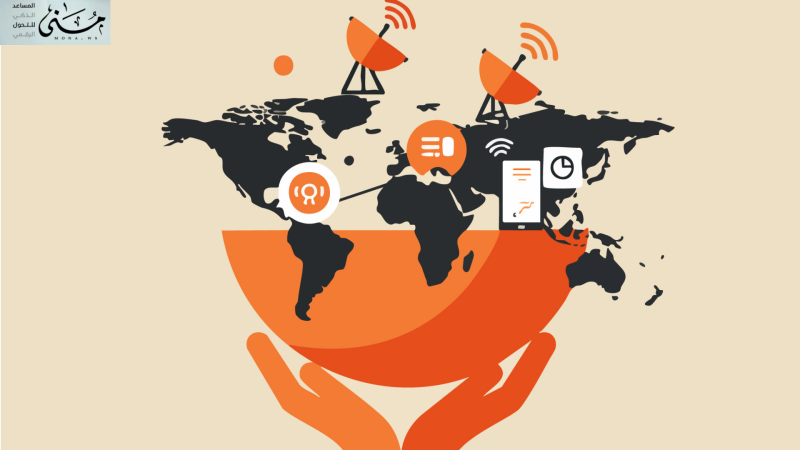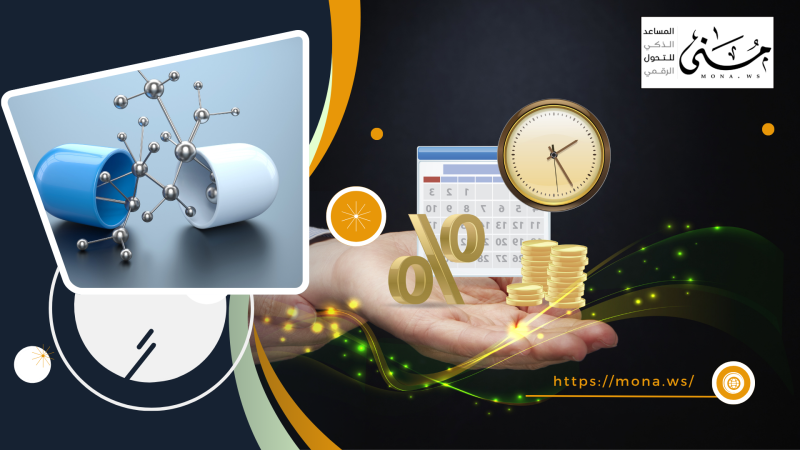Have you ever felt that a store or app "gets you" completely? It suggests what you need before you ask, reaches out at just the right moment, and offers deals that seem tailor-made for you.
You might think it's coincidence—but it's actually the result of a powerful, unseen force working behind the scenes: Customer Relationship Management (CRM) systems.
In this article, we'll explore the world of modern CRM systems and reveal how they can help you understand your customers more deeply than you ever imagined—not just to meet their needs, but to anticipate them, communicate intelligently, and build lasting relationships. We'll also showcase how a tool like DocSuite CRM can be your strongest ally in business success, through a real-life case study.
Are you ready to discover what your customers aren't telling you—but your CRM can reveal? Let's dive in.
1. Unified Communication and Enhanced Customer Interaction
Customers engage with businesses through multiple channels: phone calls, emails, social media messages, and instant chat apps. This diversity can lead to chaos if not managed efficiently. Modern CRM systems address this by unifying all communication channels into a single, integrated platform, making customer interactions smoother and more effective.
A Unified Record for Every Customer
One of the standout features of CRM systems is the consolidation of all past interactions with a customer into a comprehensive profile. Whether the customer reached out via phone, email, or messaging, all data is stored in one place, allowing your team to see the full picture of the customer's history. This unification not only simplifies follow-ups but also ensures consistent service without repetitive questions or overlooked details.
Consistent Experience Across All Channels
Studies show that customers expect the same level of service and quality regardless of the communication channel. CRM systems help you provide uniform and coordinated responses, building trust and showcasing your company's professionalism. There's no room for lost context or conflicting messages from different teams—everything is coordinated and backed by accurate data.
Real-Time Support and Intelligent Follow-Up
CRM systems support customer service teams with alert tools and interactive dashboards, reminding staff of follow-up times and providing all necessary customer information before engagement. This ensures no step in the customer journey is forgotten, creating an experience where the customer feels important and understood.
DocSuite CRM: Fast and Smart Communication
DocSuite CRM excels in this area by offering advanced tools like instant chat and group messaging, enabling your team to communicate quickly and effectively with customers. These tools have accelerated response times and reduced wait periods, directly enhancing the customer experience and boosting the company's reputation.
In summary, when you have a tool that brings your team and customers together on one platform, you're not just managing a relationship—you're building a strong trust that leads to long-term loyalty.
2. Personalizing the Experience and Analyzing Customer Behavior
Have you ever wondered why certain companies seem to "read your mind"? How do they send you enticing offers at the perfect time or suggest products as if they know exactly what you're thinking?
The secret isn't luck—it's data.
In our digital age, customer interactions are no longer random or uniform. They're based on precise analysis of customer behavior and tailored experiences that meet individual needs. Modern CRM systems provide intelligent tools that not only store information but also extract insights to help you deliver a unique, personalized experience for each customer.
Data: The Key to Deeper Understanding
CRM systems collect and integrate all available customer data: purchase history, support notes, social media interactions, and reviews. This data isn't just stored; it's analyzed using smart tools to uncover buying patterns, preferences, and decision-making triggers. This enables companies to offer precisely tailored products and services to each customer segment—or even to individual customers.
Personalization Builds Loyalty
A personalized experience creates an emotional connection between the customer and the brand. For instance, Starbucks collects customer data through its app and loyalty program, then analyzes it to provide precise recommendations. If a customer prefers plant-based options, the app suggests new vegan drinks or offers discounts on dairy-free milk. These personalized touches have significantly increased customer engagement and additional purchases—proving that personalization is not a luxury but an effective strategy for loyalty and profit.
DocSuite CRM: Precise Analytics and Customized Experience
DocSuite CRM offers advanced analytical tools that allow a deep understanding of customer needs and expectations. Through interactive dashboards, service teams can track customer behavior trends and responses, helping to design proactive campaigns or offers that align with those trends.
Moreover, the system provides comprehensive information for each customer: from purchase history and past issues to specific preferences. This enables staff to deliver truly personalized service, making the customer feel understood and valued—not just a number in a database.
The Result: An Unforgettable Experience
When you combine intelligent analysis with personalized communication, the result is an exceptional customer experience. One where the customer feels special and the company anticipates their needs before they even ask. This is the secret that keeps some companies ahead: their ability to turn data into positive emotions and long-term loyalty.
3. Proactive Follow-Up and Enhancing Customer Loyalty
Success in customer service isn't just about meeting requests—it's about staying one step ahead. Modern CRM systems don't wait for customers to express their needs; they use data and smart predictions to provide proactive service that ensures a smooth, stable experience and strengthens brand loyalty.
Anticipating Customer Needs Before They Ask
Through deep analytics, a CRM system can detect customer behavior patterns and interpret them in a way that allows you to predict their next steps. For example, if data indicates that a particular customer typically requests maintenance three months after purchase, the system can automatically send a reminder or a special offer before the customer reaches out. This proactive communication transforms the relationship from mere "service upon request" to a smart partnership characterized by care and anticipation.
Preventing Customer Churn
By integrating artificial intelligence with CRM, companies can detect early signs of potential customer departure, such as decreased engagement or delayed responses. Once these patterns are identified, the system triggers programmed actions like direct contact, special offers, or satisfaction surveys. These measures can make the difference between a silently departing customer and one who is confidently retained.
Automating Follow-Ups: Small Actions with Big Impact
One of the intelligent features in CRM systems like DocSuite CRM is the ability to automate routine tasks: sending thank-you messages after each purchase, requesting service evaluations, or reminding about specific appointments. These simple messages leave a deep positive impression because they show that your company cares about every moment in the customer's journey—before, during, and after the sale.
Loyalty Isn't Accidental… It's the Result of Smart Follow-Up
Numerous studies indicate that customers remain loyal to brands that maintain regular and personalized communication with them. More importantly, improving customer retention rates by just 5% can lead to profit increases ranging from 25% to 95%. This proves that retention strategies based on CRM are not just an add-on but a long-term investment that yields tangible returns.
When a customer feels that you haven't forgotten them, that you're thinking about them and anticipating their needs, you're not just earning satisfaction—you're building genuine loyalty. With modern CRM tools, especially those offered by DocSuite CRM, your organization can solidify this loyalty and turn current customers into permanent ambassadors for your brand.
Real-Life Application: DocSuite CRM in Action
To illustrate the real-world impact of these features, let's examine a brief scenario of CRM implementation in a mid-sized company. A leading retail company was struggling with fragmented customer information across multiple channels and delayed responses to inquiries. The company decided to adopt DocSuite CRM to unify and organize its customer relationship management.
Upon implementation, customer service and sales staff gained access to a unified platform consolidating all customer messages and communications, significantly reducing duplicated efforts and communication errors. For instance, service representatives could view a customer's complete history—including recent purchases, past conversations, and preferences—before responding to new inquiries, enabling them to provide swift, accurate, and consistent service every time.
After several months of using DocSuite CRM, the company began noticing important patterns in customer data. For example, analysis reports revealed that a significant segment of customers who purchased a particular product required maintenance three months post-purchase. Acting on this insight, the support team utilized CRM automation features to create automatic reminders sent to customers at the appropriate time to schedule a free check-up or offer extended service. This proactive approach pleasantly surprised customers; instead of encountering sudden issues, the company reached out in advance with a preventive solution. Such proactive service based on CRM data enhanced customer trust in the company by demonstrating a deep understanding of their needs before they even expressed them.
Furthermore, the company leveraged CRM information to personalize marketing offers. The marketing department segmented customers based on purchase history and interests using DocSuite's intelligent segmentation tools, then launched targeted email campaigns for each segment—sending special offers to luxury product customers different from those sent to budget-conscious customers. These efforts led to a significant increase in customer engagement with the campaigns, as each customer felt the offer was specifically designed for them. As the company continued to analyze customer feedback through CRM dashboards, the process of service and marketing improvement became cyclical and based on digital facts rather than mere guesswork.
CRM Implementation Results: A Practical Model
By the end of the year, the impact of implementing the CRM system was evident, with results summarized as follows:
-
Significant Increase in Customer Satisfaction due to improved service quality and faster response times.
-
Reduction in Complaint Rates thanks to unified communication channels and proactive customer follow-up.
-
Improved Customer Retention Rates compared to the previous year, resulting from intelligent personalization and regular follow-ups.
-
Growth in Revenue from Existing Customers through the application of cross-selling and up-selling strategies based on CRM analytics.
-
Deeper Customer Insights, as DocSuite CRM reports enabled various teams to understand customer needs with unprecedented accuracy.
-
Discovery of New Communication Opportunities that the company hadn't previously considered, such as critical interaction timings or tailored offers for specific segments.
Conclusion: Investing in a robust Customer Relationship Management system is not just a technological luxury; it's a strategic element that directly impacts your company's understanding of its customers and excellence in serving them. By unifying communication channels, intelligently analyzing data, and engaging proactively, your organization can build a 360-degree view of each customer, thereby delivering real value and an exceptional experience that exceeds expectations. This is how CRM systems transform the customer relationship from a mere transaction into a long-term partnership built on trust and mutual understanding. The above sources confirm how proper CRM application makes a fundamental difference—in communication, personalization, and follow-up—that can elevate customer experience and loyalty to unprecedented levels.
Conclusion
In a world where success is measured by how close you are to your customers, CRM systems are no longer just support tools—they've become strategic partners in building sustainable and profitable relationships. From unifying communication channels to behavior analysis, proactive service, loyalty enhancement, and actual revenue growth—systems like DocSuite CRM offer you an unprecedented ability to understand your customer... more than you expect.
If you're seeking a way to strengthen your connection with customers and turn every interaction into an opportunity for excellence, it might be time









Comments
Add New Comment